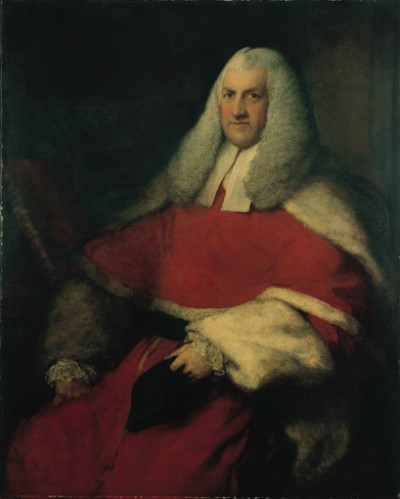|
Richard Perryn
Sir Richard Perryn (1723–1803) was a Welsh judge who became baron of the exchequer. Life The son of Benjamin Perryn of Flint, merchant, by his wife, Jane, eldest daughter of Richard Adams, town clerk of Chester, he was baptised in the parish church of Flint on 16 August 1723. He was educated at Ruthin Grammar School and The Queen's College, Oxford, where he matriculated on 13 March 1741, but did not take any degree. He was admitted a student of Lincoln's Inn on 6 November 1740, and on 27 April 1746 migrated to the Inner Temple, where he was called to the bar on 3 July 1747. Perryn began practice in the court of chancery, and gradually acquired such a reputation there as to be employed during the latter years of his practice in almost every cause. On 20 July 1770 he became vice-chamberlain of Chester, and in the same year was made a King's Counsel and a bencher of the Inner Temple. On 6 April 1776 he kissed hands on his appointment as a Baron of the Exchequer in the place ... [...More Info...] [...Related Items...] OR: [Wikipedia] [Google] [Baidu] |
Baron Of The Exchequer
The Barons of the Exchequer, or ''barones scaccarii'', were the judges of the English court known as the Exchequer of Pleas. The Barons consisted of a Chief Baron of the Exchequer and several puisne (''inferior'') barons. When Robert Shute was appointed second baron in June 1579 the patent declared "he shall be reputed and be of the same order, rank, estimation, dignity and pre-eminence to all intents and purposes as any puisne judge of either of the two other courts." The rise of commercial trade in Elizabethan England occasioned fraudulent application of the ''Quo minus'' writ. More taxation demanded staff at the exchequer to sift an increase in the case load causing more widespread litigation cases to come to the court. From the 1580s onwards the Barons of Exchequer were no longer held in such low regard, and more likely to be Serjeants-at-law before qualification. The Inns of Courts began to exclude solicitors, and held posts for judges and barons open equally to barristers. I ... [...More Info...] [...Related Items...] OR: [Wikipedia] [Google] [Baidu] |
